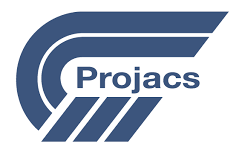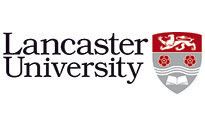
Sustainable Supply Chain Management
Course ID: 2511100101395ESH
Course Dates : 10/11/25 Course Duration : 5 Studying Day/s Course Location: London, UK
Language: Bilingual
Course Category: Professional and CPD Training Programs
Course Subcategories: Leadership and Management Excellence
Course Certified By: ESHub CPD & LondonUni - Executive Management Training
* Professional Training and CPD Programs
Leading to:
Executive Diploma Certificate
Leading to:
Executive Mini Masters Certificate
Leading to
Executive Masters Certificate
Certification Will Be Issued From :
From London, United Kingdom
Course Fees: £5,120.30
Vat Not Included in the price. VAT may vary depending on the country where the course or workshop is held.
Click to Pay
Date has passed please contact us Sales@e-s-hub.com
Course Information
Introduction
Supply chain management has evolved from a logistical necessity into a strategic cornerstone for organizations seeking to thrive in an increasingly interconnected and environmentally conscious world. As global supply chains expand, they face mounting pressure to balance efficiency with sustainability—a challenge that demands innovative solutions and forward-thinking leadership. The concept of sustainable supply chain management (SSCM) merges traditional supply chain principles with environmental stewardship, social responsibility, and economic viability. This course delves into the intricacies of SSCM, equipping participants with the tools and frameworks needed to navigate this complex landscape.
One of the most pressing challenges in modern supply chains is the growing demand for transparency and accountability. Consumers, investors, and regulatory bodies are scrutinizing the environmental and social impacts of supply chain operations more than ever before. For instance, companies like Patagonia have set benchmarks by integrating sustainability into their sourcing and production processes, demonstrating how ethical practices can enhance brand reputation and customer loyalty. However, many organizations struggle to align their supply chains with sustainability goals due to fragmented systems, lack of expertise, or resistance to change. This course addresses these gaps by providing actionable strategies tailored to real-world scenarios.
The Triple Bottom Line (TBL) framework—encompassing people, planet, and profit—serves as a guiding principle for sustainable supply chain management. By adopting this holistic approach, organizations can mitigate risks, reduce costs, and foster innovation. Research shows that companies prioritizing sustainability often outperform their peers financially, underscoring the business case for SSCM. Moreover, mastering sustainable practices enhances resilience against disruptions, such as climate-related events or geopolitical tensions, which are becoming increasingly frequent. Participants will explore these concepts through case studies, including IKEA’s efforts to source renewable materials and Unilever’s commitment to zero-waste manufacturing.
Despite its clear benefits, implementing sustainable supply chain practices remains fraught with challenges. Limited supplier engagement, inadequate data tracking, and insufficient regulatory alignment are common obstacles. The course aims to equip participants with practical methodologies, such as life cycle assessment (LCA) and supplier scorecards, to overcome these barriers. By understanding how to measure and manage environmental footprints, professionals can drive meaningful change within their organizations. Real-world examples, such as Walmart’s Project Gigaton initiative, illustrate how large-scale collaboration can lead to significant reductions in greenhouse gas emissions.
For individuals, mastering sustainable supply chain management opens doors to new career opportunities and leadership roles. Employers value professionals who can integrate sustainability into operational strategies while delivering measurable results. Organizations, on the other hand, stand to gain competitive advantages by reducing waste, enhancing compliance, and building stronger stakeholder relationships. The course draws on insights from industry leaders and academic research to ensure participants receive cutting-edge knowledge applicable across sectors.
Ultimately, the transition to sustainable supply chains is not merely an option but a necessity for organizations aiming to remain relevant in the 21st century. Whether addressing carbon neutrality targets, ethical labor practices, or circular economy models, the principles covered in this course empower participants to lead transformative initiatives. Through a blend of theoretical foundations and hands-on exercises, attendees will emerge equipped to champion sustainability in their professional endeavors.
Objectives
By attending this course, participants will be able to:
Analyze the key components of the Triple Bottom Line framework and apply them to evaluate supply chain performance.
Design strategies to engage suppliers in sustainability initiatives using tools such as supplier scorecards and audits.
Evaluate the environmental impact of supply chain activities using life cycle assessment (LCA) methodologies.
Implement circular economy principles to reduce waste and enhance resource efficiency in supply chain operations.
Develop risk mitigation plans to address climate-related disruptions and ensure supply chain resilience.
Apply best practices in sustainable procurement to align with global standards and regulatory requirements.
Synthesize data-driven insights to communicate sustainability achievements to stakeholders effectively.
Who Should Attend?
This course is ideal for:
Supply chain managers, logistics coordinators, and procurement specialists seeking to integrate sustainability into their operations.
Sustainability officers and corporate responsibility professionals tasked with reducing organizational environmental footprints.
Consultants and analysts supporting clients in achieving sustainable business objectives.
Mid-level to senior executives responsible for strategic decision-making in supply chain management.
These groups will find the course valuable as it bridges the gap between theoretical knowledge and practical application, enabling them to meet evolving market demands. While prior experience in supply chain management is beneficial, the course is structured to accommodate intermediate learners with foundational knowledge of supply chain principles.
Training Method
• Pre-assessment
• Live group instruction
• Use of real-world examples, case studies and exercises
• Interactive participation and discussion
• Power point presentation, LCD and flip chart
• Group activities and tests
• Each participant receives a 7” Tablet containing a copy of the presentation, slides and handouts
• Post-assessment
Program Support
This program is supported by:
* Interactive discussions
* Role-play
* Case studies and highlight the techniques available to the participants.
Daily Agenda
Daily Schedule (Monday to Friday)
- 09:00 AM – 10:30 AM Technical Session 1
- 10:30 AM – 12:00 PM Technical Session 2
- 12:00 PM – 01:00 PM Technical Session 3
- 01:00 PM – 02:00 PM Lunch Break (If Applicable)
- Participants are expected to engage in guided self-study, reading, or personal reflection on the day’s content. This contributes toward the CPD accreditation and deepens conceptual understanding.
- 02:00 PM – 04:00 PM Self-Study & Reflection
Please Note:
- All training sessions are conducted from Monday to Friday, following the standard working week observed in the United Kingdom and European Union. Saturday and Sunday are official weekends and are not counted as part of the course duration.
- Coffee and refreshments are available on a floating basis throughout the morning. Participants may help themselves at their convenience to ensure an uninterrupted learning experience Provided if applicable and subject to course delivery arrangements.
- Lunch Provided if applicable and subject to course delivery arrangements.
Course Outlines
Foundations of Sustainable Supply Chain Management
Overview of sustainable supply chain principles and frameworks.
Introduction to the Triple Bottom Line (TBL) model.
Key trends shaping sustainable supply chains globally.
Case study analysis: Successful SSCM implementations.
Day 2:
Environmental Impact Assessment and Tools
Understanding life cycle assessment (LCA) methodologies.
Measuring carbon footprints in supply chains.
Strategies for reducing energy consumption and emissions.
Workshop: Conducting an LCA for a sample product.
Day 3:
Supplier Engagement and Collaboration
Building partnerships for sustainable sourcing.
Developing supplier scorecards and audit protocols.
Overcoming barriers to supplier engagement.
Group activity: Drafting a supplier engagement plan.
Day 4:
Circular Economy and Waste Reduction
Principles of the circular economy in supply chains.
Designing products and processes for recyclability.
Reducing waste through reverse logistics.
Case study: Circular economy success stories.
Day 5:
Risk Management and Future Trends
Identifying and mitigating climate-related risks.
Regulatory compliance and reporting frameworks.
Emerging technologies in sustainable supply chains (e.g., blockchain, AI).
Final project presentation: Developing a sustainable supply chain strategy.



















































